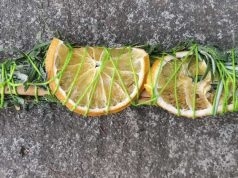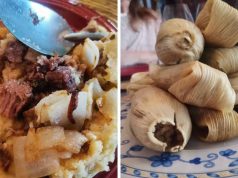Making Your Own Low Cost Probiotics
From Marjory Wildcraft’s GrowNetwork.
Well the science is in folks, and has been for some time! Probiotics are essential to maintaining a healthy gut, and a strong immune system. A properly functioning digestive system is the key to good health. You can grow, purchase, and eat all of the organic, mineral dense, beyond awesome food you want, but if you are not digesting and absorbing those nutrients then it is all for naught.
The same can be said for all of the fancy vitamin supplements, and even many of the probiotic supplements that are out there. There’s an old saying that goes something like: “garbage in, garbage out.” Anyway, there’s good news. You can grow your own probiotic nutritional supplements right in your homestead kitchen, or barn, or hallway closet… The point is you can be in control of your health and not have to depend on high dollar supplements grown in some lab someplace hundreds of miles away!
The Top 5 Probiotic Foods on Our Homestead
I put together a list of the top five probiotic-rich foods that we are currently or have in the past made and consumed here on the Traditional Catholic Homestead (www.traditionalcatholichomestead.com):
#1 – Kefir: We make both dairy and water kefir at home. It’s super simple, and easy to keep the process going perpetually. We usually go through about a gallon and a half of kefir per week in our household.
#2 – Kombucha: Another super simple and easily propagated probiotic beverage. The Traditional Catholic Homestead family consumes anywhere from 3 to 6 gallons of continuously brewed kombucha per week. Here’s how we brew ours: Brewing Kombucha. I really like experimenting with different herbs and teas in our brews. I’ve even heard of someone making Mountain Dew-flavored kombucha (though I wouldn’t recommend it)!
Note: Kefir grains and kombucha SCOBY will grow and reproduce so you can propagate the cultures and give away or sell the surplus.
#3 – Sauerkraut: The old homestead standby! There are a million different recipes for fermented kraut that you can make at home. As long as you don’t can the finished product it will be a probiotic-rich powerhouse. The beauty of sauerkraut is that it doesn’t require any fancy inoculants or cultures to get going. A true kraut is like a sourdough bread starter… made from wild cultures that occur all around us! Other than cabbage (or seed), no start up costs!
#4 – Other Fermented Veggies: The same process and bacteria used to make sauerkraut can be used to ferment any number of other veggies. Just use what you like or what you have in abundance. We’ve fermented carrot sticks, salsa, shredded beets with carrots, garlic… you name it. The possibilities are literally limited by your imagination and tastes!
#5 – Homebrew!!! Most people wouldn’t think of homemade beer, hard ciders, mead, or wine as a probiotic food, but if you think about it, they are. Any of your homebrews will have living yeasts present throughout the beverage (as long as you don’t pasteurize it, but who does that, right!). I know there is a big push in some circles to eliminate yeast from our diets, but they are an essential part of our digestive process. They just need to be kept in balance. Plus, homebrew is awesome!!!
Honorable mention goes to homemade vinegars. These are the living vinegars with the “mother” culture still in them. We haven’t made any yet, so I didn’t include them in this list, but homemade apple cider vinegar is coming soon to the repertoire of fermented foods on The Traditional Catholic Homestead.
Check out the 2016 Online Homegrown Food Summit starting Monday March7th and lasting all week! The Summit is free to watch and video of the Summit will be available as well.
Click the image below to register today or to get access to the video of the summit:




